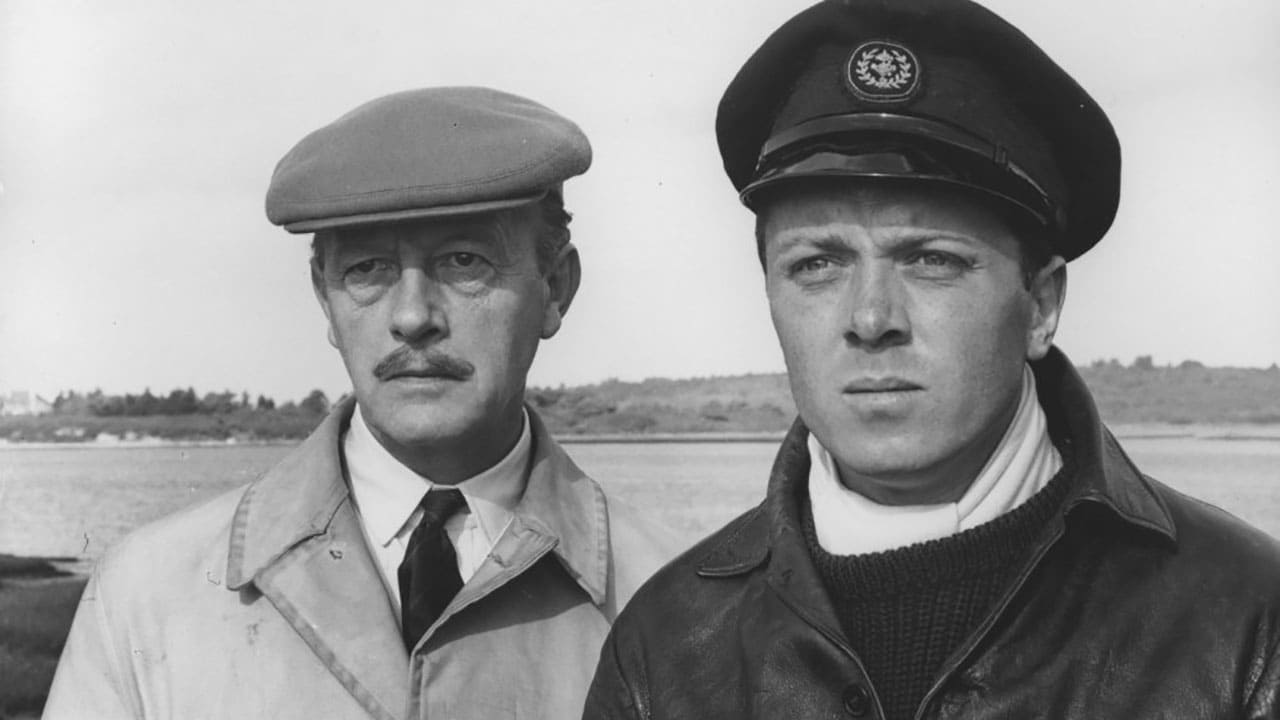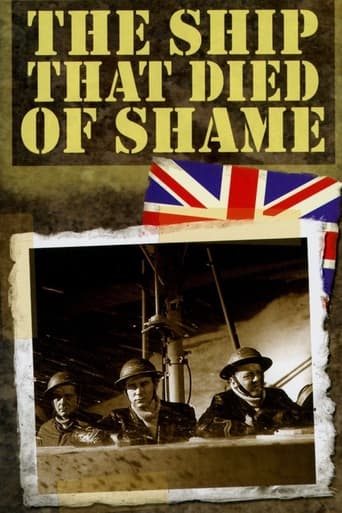

Despite being downbeat and full of illogical ideas not least the title,this film still manages to be entertaining till the rather poor climax.So much of what happens is not properly explained.Why does Attenborough want to go in with Culver,how does Lee know that Attenborough will be at the garage.Why does Cilver shoot Lee,and of course the illogical notion that a boat has a soul.Poor old George Baker doesn't have a happy moment during this film.Everything is gloom.Attenborough plays the sort of role that he must have played dozens of times in the fifties.Incidentally since the craft was a Motor Torpedo Boat shouldn't the title have been The Boat that died of shame?
... View MoreDespie my interest in post war films and all things Naval, I have not heard of this film. How I have missed it is beyond me.George Baker is fantastic as the lead and Bill Owen, known to me as Compo, is a revelation. Richard Attenborough is perfect as always and the roles played by Bernard Lee and Virginia McKenna are small but superb.I must now read the book to see how the author handled the many strands and ending, which is a little disappointing in the film. Few people in today's Britain understand the stress and strain on on those demobbed at the end of WW2 but I suspect that with growing redundancies of front line troops in Afghanistan, the stories and threads explored in this film will strike a modern chord.
... View MoreThe other commentator 'ianlouisiana' has summed this movie up pretty well.It is a morality play with the little ship representing a metaphor of moral's decline.A little heavy-handed at times, but it's engaging for all of that. There's a surprisingly good cast list for a story with such potentially limited appeal. Richard Attenborough, George Baker, Bill Owen, Vrginia McKenna and Bernard Lee could make even a turkey presentable.An interesting cat-and-mouse scenario develops between the three smugglers - Attenborough, Baker & Owen - and the customs officer, played by excellent Bernard Lee. He has a confrontation with them in harbour during which he is arrogantly brushed-off by Attenborough, whom he describes as being 'Lah-de-da'. Later, in a near-catch out in the English channel at night and in fog, he hears their boat hurtling away, and immediately recognises the sound of its powerful engines. From that moment on they are marked men.Things descend from high spirits to sordid crime and ultimately murder. And their spiral of disgrace is reflected in the declining reliability of their vessel and its final loss.There's plenty of open-air photography with some excellent shots at sea. White-capped waves and bright sunlight contrast with the darkening human motives and claustrophobic interior.Available on DVD, and well worth a whizz for all the right reasons. Though it's not a happy ending, even so.
... View MoreSpoilers. The title pretty much says it all. Ship 1087 is the British equivalent of an American MTB, operating in the English channel as a patrol boat, rescue vessel, escort, and what have you. While similar craft occasionally break down or are hard on the wheel, old 1087 is fast and reliable and gets its crew out of bad scrapes, as if it were a sentient and benificent force. The end of the war sees its crew dispersed and a bit disgruntled, and the boat itself winds up in a graveyard. One of the hands, Attenborough, runs into two of the former crew in a pub and persuades them to buy the old 1087, spruce her up, and use her to engage in a bit of minor smuggling, a few crates of choice wine now and then, just to keep the old boat going and its peacetime crew in cash. No harm to anybody, don't you know. But Sir Dickie, now more or less skipper of the boat, is sucked into running stuff rather murkier than Chateau neuf du Pape. He begins working in cahoots with a more dangerous ex-army man, and finds himself now transporting guns and then fugitive child murderers. Challenged by the two other hands, he replies, "I'll take care of business. You take care of the boat." Well, things just go rotten after that. Hunted down by the authorities, the Major plugs the coastguard officer. When the third hand, Raines, who maintains the engines, tries to leave, the Major plugs him as well. The protagonist, Randall, a basically good guy, plugs the Major. Sir Dickie and Randall have it out on the deck of old 1087, now heaving up and down in a heavy sea. Dickie tumbles overboard but manages to catch hold of a stanchion. Randall reaches down to pull him back aboard but old 1087 gives a sudden lurch and yanks Dickie into the sea before apparently dropping its still spinning screws on him. The boat then dies of shame. The boat of course is a symbol of the moral status of its crew. During the war it looks spiffy and performs superbly. Engaged in smuggling, its engines begin to fail more and more often, and it developes other quirks. It's all a bit on the heavy handed side, but it's not an uninteresting movie. Some nice shots of the boat, long and sleek, at sea, and some engaging scenes of combat near the beginning. Overall, this sort of story isn't surprising coming from Nicholas Monseratt, but it isn't the kind of movie we usually associate with Ealing Studios. It's worth catching if it's on, and it's not on TV very often.
... View More